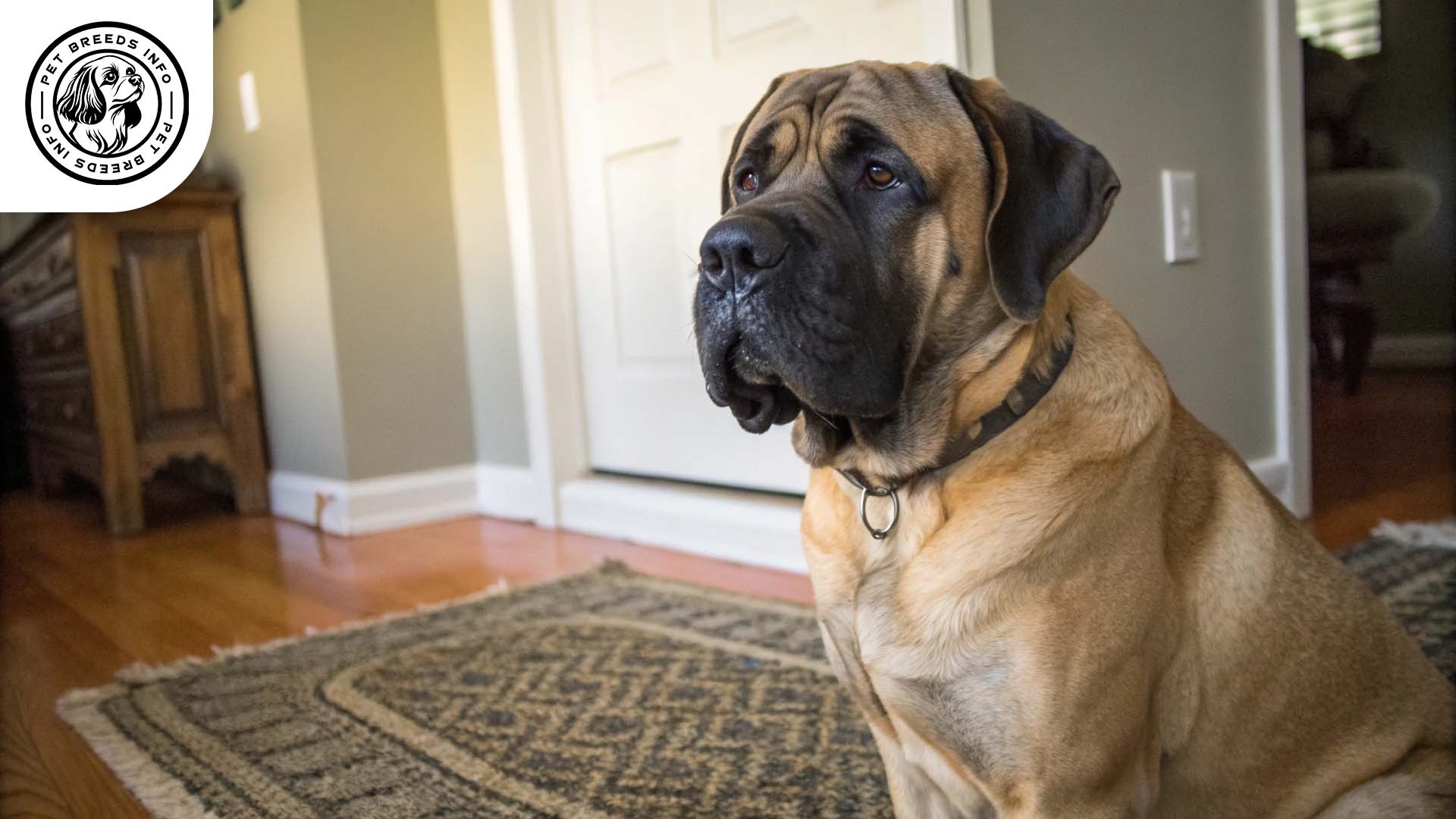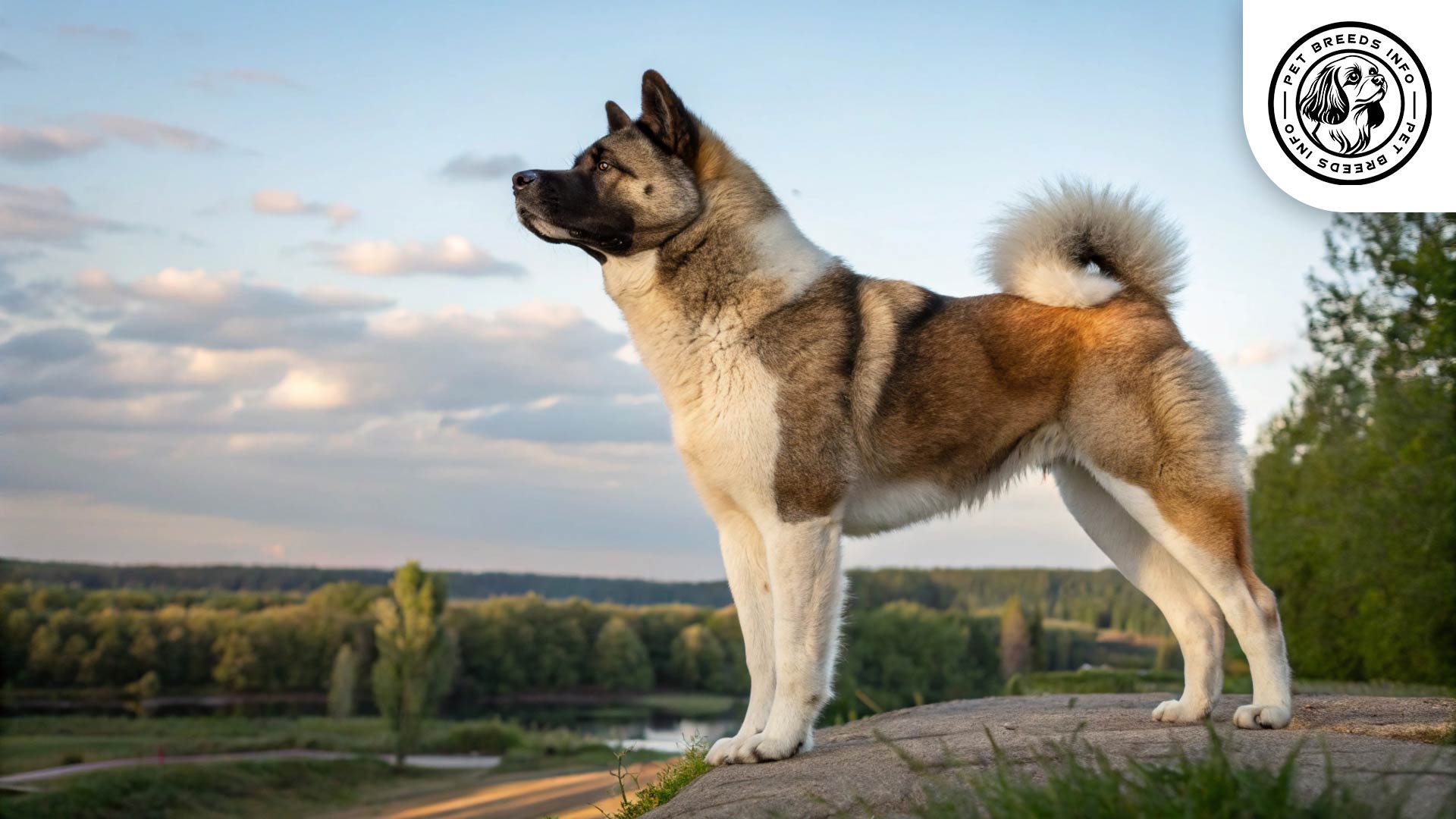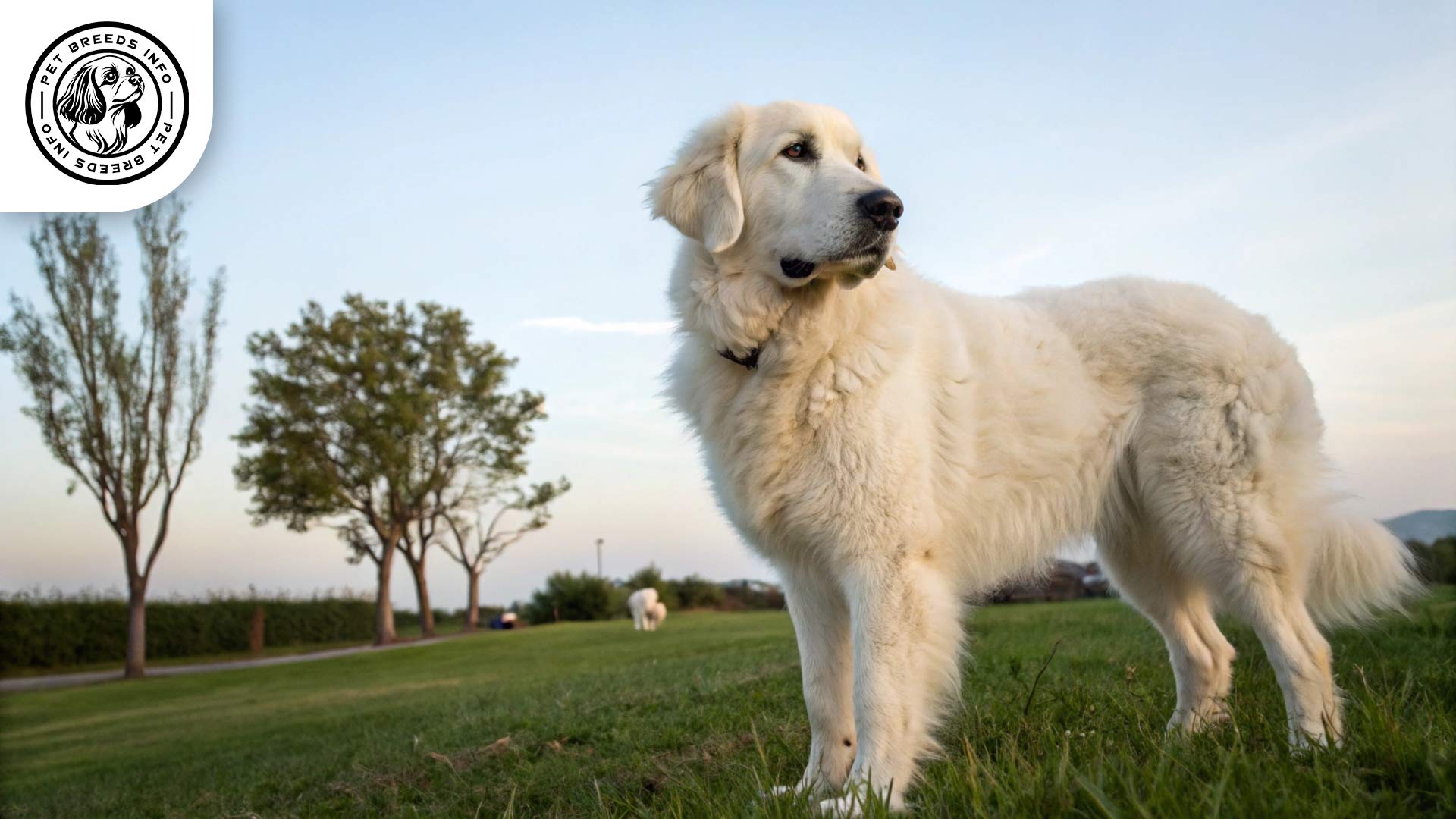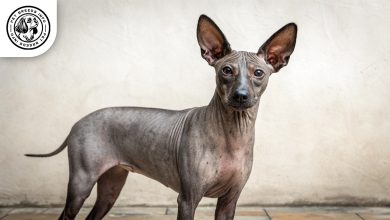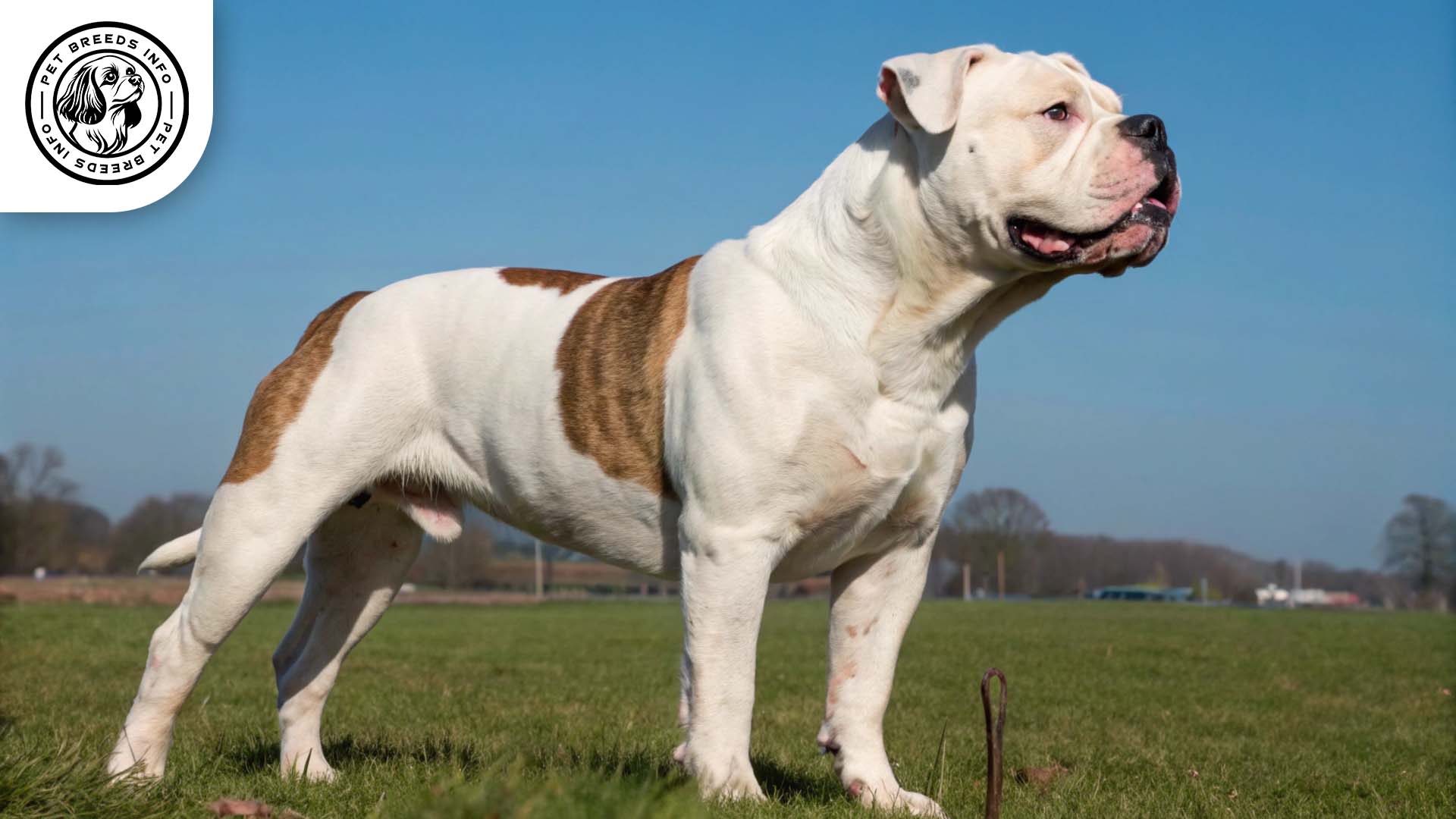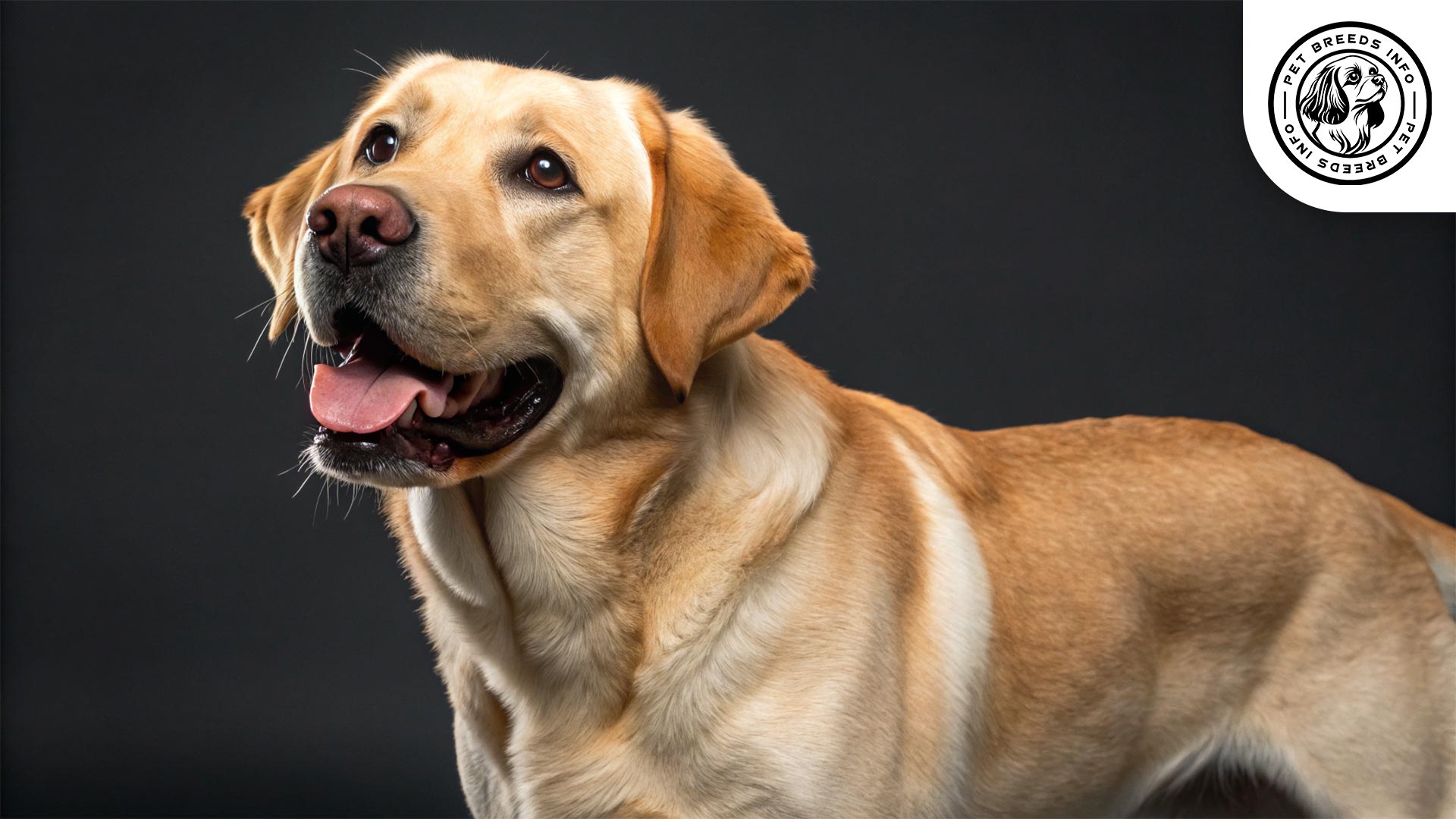Mastiff Dog Breed : Size, Price, Health & Personality
General Introduction of the Breed
The Mastiff, also known as the English Mastiff, is a giant breed of dog with an ancient lineage. Other names for this breed include Mastín in Spanish and Dogue in French. This breed originates from England and has been present for thousands of years.
Mastiffs were originally bred as guard dogs and war dogs, and they have a history of protecting properties and estates. Their ancestors date back to Roman times, where they were used in battle. Over the years, they transitioned into loyal family companions while retaining their protective instincts.
Table of Contents
| Weight | Males: 160-230 lbs (73-104 kg), Females: 120-170 lbs (54-77 kg) |
| Lifespan | 6-10 years |
| Diet | High-quality kibble, raw, or wet food with portion control |
| Care | Moderate exercise, minimal grooming, sensitive to heat |
| Health | Prone to hip dysplasia, heart issues, bloat, and joint problems |
| Color | Fawn, apricot, brindle |
| Nature | Loyal, protective, gentle, sometimes stubborn |
| Price | $1,500 – $3,500 |
Physical Characteristics
Mastiffs are among the largest dog breeds, with males typically weighing between 160 to 230 pounds and standing 30 inches tall. Females are slightly smaller, weighing between 120 to 170 pounds and standing 27 inches tall.
They have a short, dense coat that comes in various colors, including fawn, apricot, and brindle. Their eyes are medium-sized, dark brown, and expressive.
Their ears are medium-sized, V-shaped, and naturally hang close to the sides of their heads. The tail is long, tapering towards the end, and usually reaches the hock.
Distinctive features of the Mastiff include their broad heads, short muzzles, deep wrinkles around their faces, and massive paws.
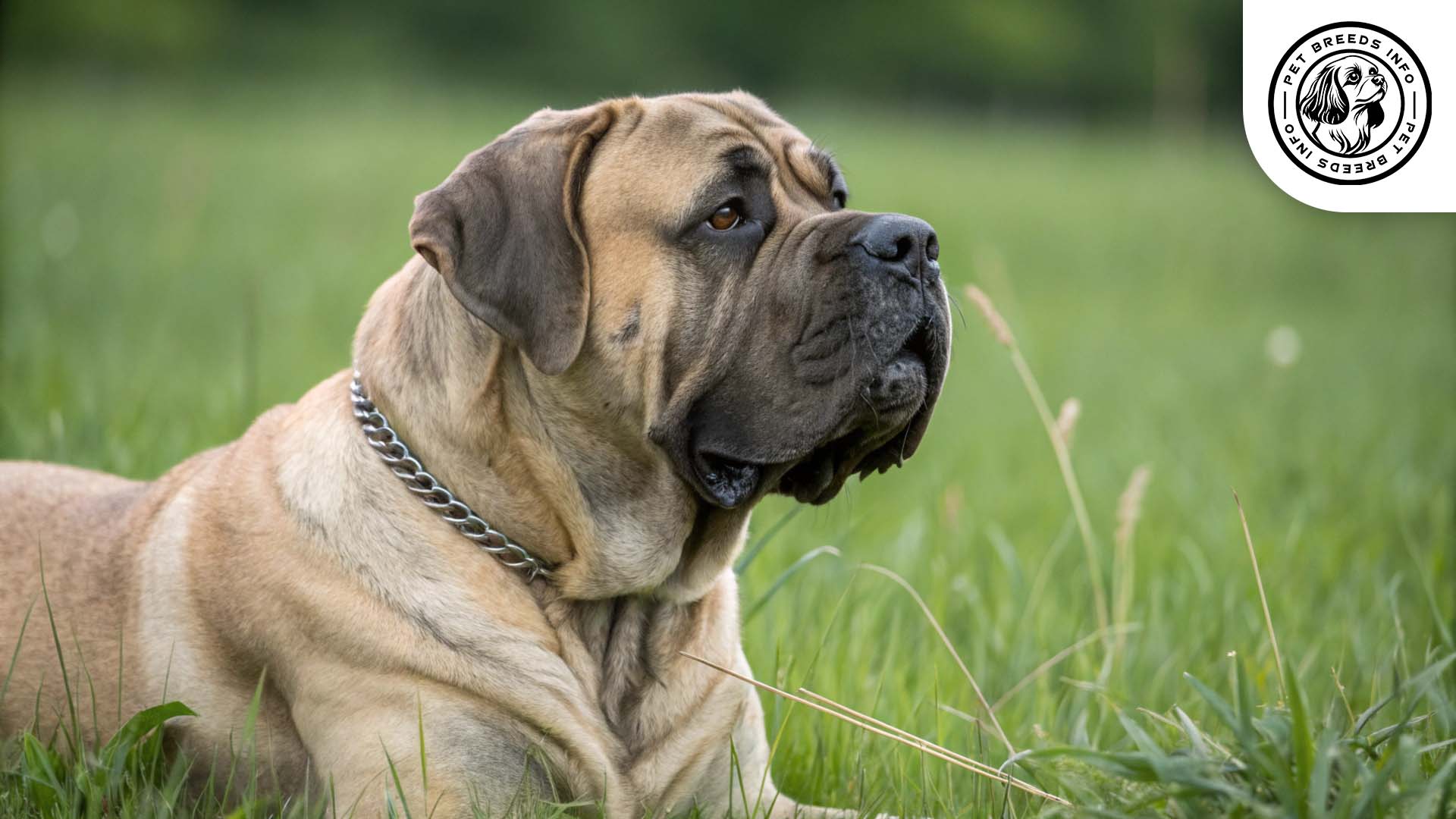
Personality and Temperament
Mastiffs are intelligent and quick learners, though they can sometimes be stubborn. They require patient training and positive reinforcement.
Despite their large size, they have a calm demeanor and moderate energy levels. Daily walks and light exercise are sufficient for their needs.
They are highly loyal and deeply attached to their owners, often forming strong bonds with their families.
Mastiffs are generally gentle with children and get along well with other household pets when properly socialized.
They have a protective nature, which makes them excellent watchdogs. However, early training is necessary to prevent overprotectiveness.
They are sensitive to their surroundings and may take time to adjust to new environments or changes in routine.
Read More: Japanese Chin Dog
Care and Maintenance Requirements
Mastiffs need regular but moderate exercise, such as short walks and play sessions. They are not highly active dogs.
Due to their size, they thrive best in homes with ample space but can adapt to apartments if exercised properly.
Their short coat requires minimal grooming, needing only occasional brushing to remove loose hair. They shed moderately.
They are sensitive to extreme heat and humidity and should have access to shade and fresh water at all times.
Proper hygiene care includes regular bathing, nail trimming, ear cleaning, and dental check-ups.
Diet and Nutrition
A Mastiff’s diet should consist of high-quality dry kibble, raw, or wet food, ensuring a balance of protein, fats, and carbohydrates.
This breed is prone to obesity, so portion control and meal scheduling are important. They require two to three meals per day.
Avoid feeding them harmful foods such as chocolate, onions, grapes, and excessive fatty foods.
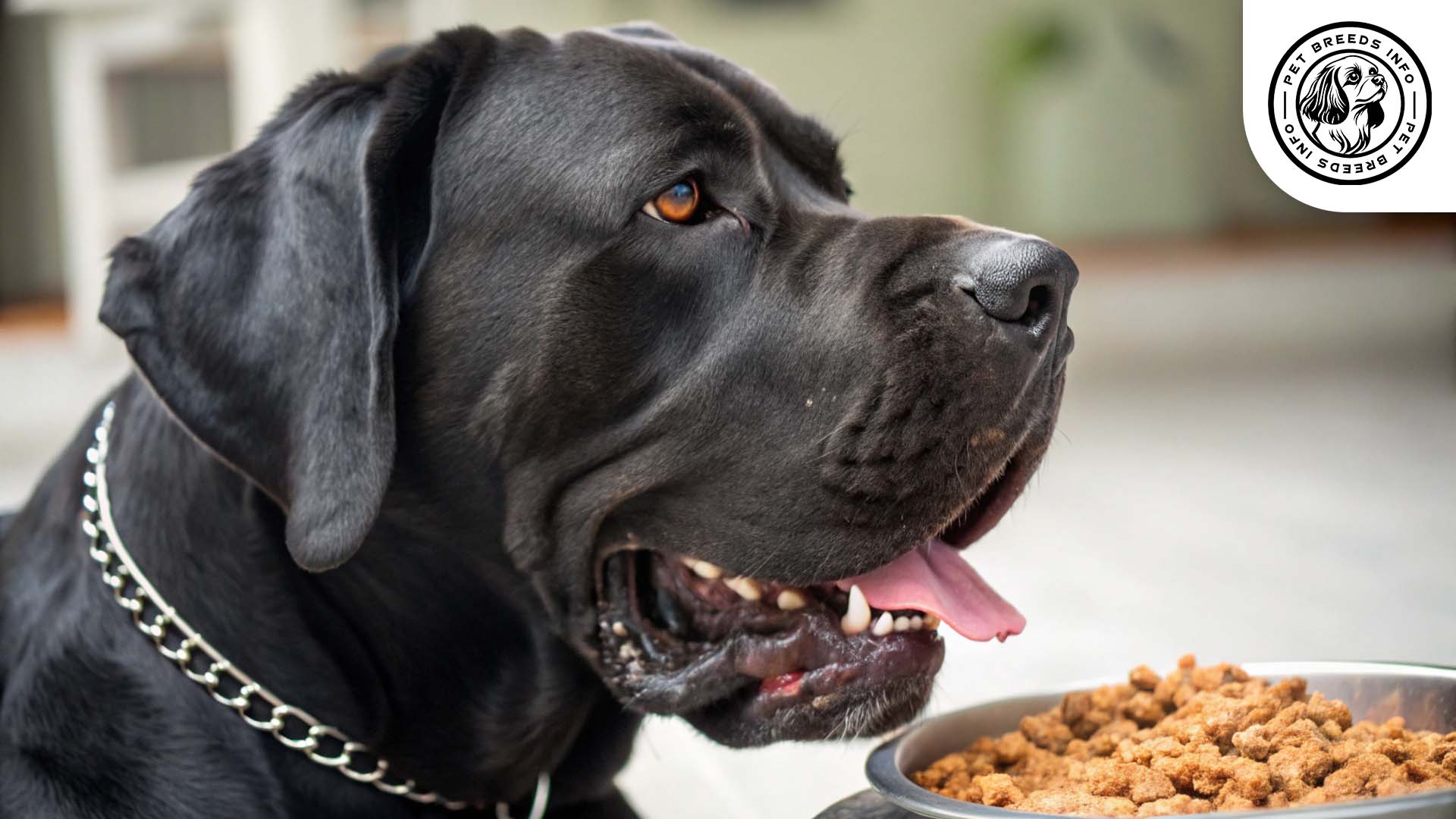
Health and Common Medical Issues
Mastiffs are prone to certain genetic health conditions, including hip and elbow dysplasia, heart issues, and bloat.
They also have a tendency to develop joint problems due to their large size, so weight management is crucial.
The average lifespan of a Mastiff ranges from 6 to 10 years.
Regular vaccinations, vet check-ups, and preventive health care are essential for their well-being.
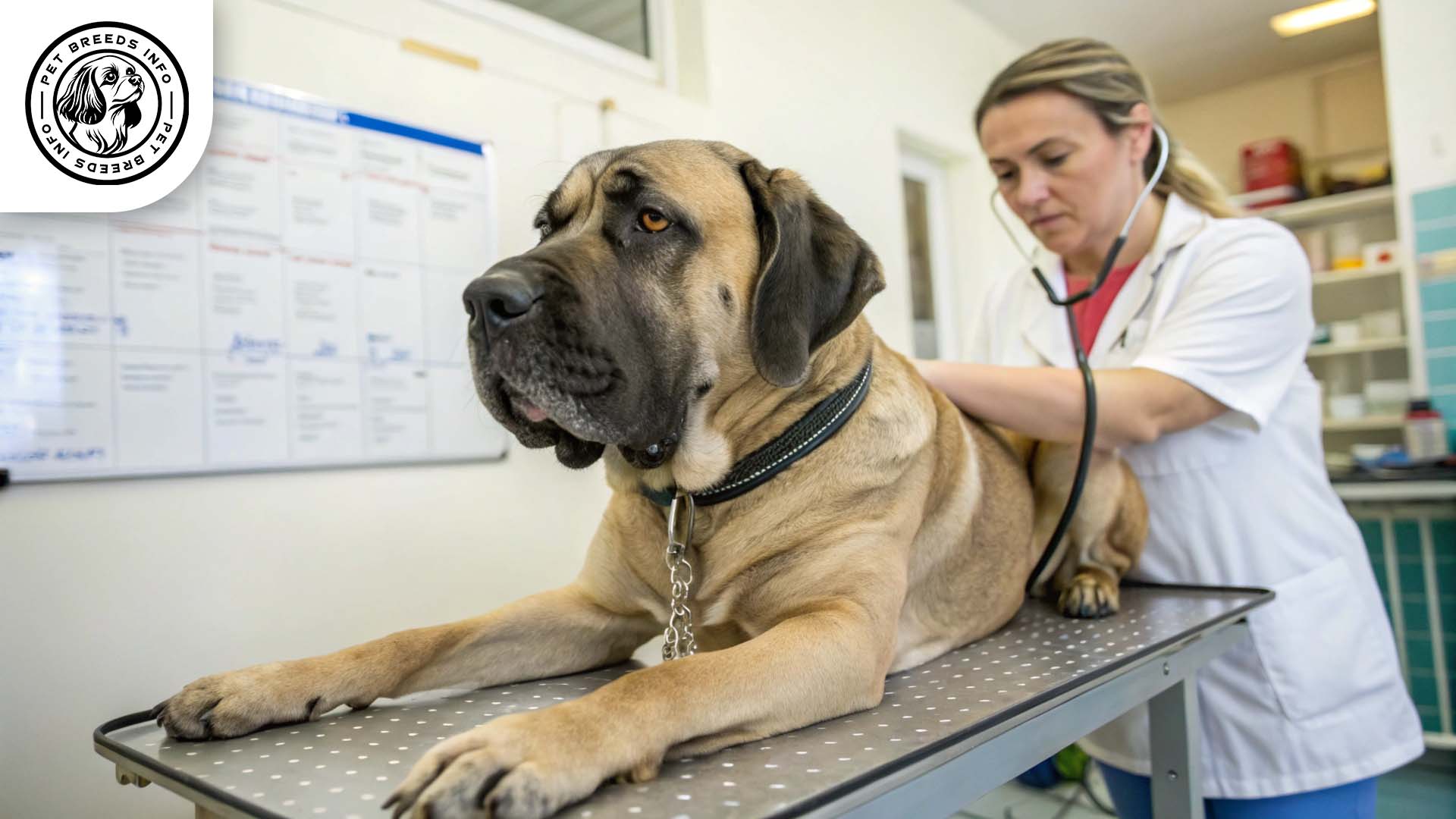
Training and Behavior Management
Mastiffs can be stubborn but respond well to consistent and positive reinforcement training methods.
Early socialization with people and animals is essential to develop a well-mannered companion.
They respond best to firm, patient training without harsh corrections. Using treats and praise enhances their learning.
Leash training is important due to their size and strength.
Read More: Japanese Spitz Dog
Interaction with Other Animals and Humans
Mastiffs are affectionate with children and can be gentle companions with proper socialization.
They get along with other household pets if raised together. However, male Mastiffs may be dominant toward other males.
They are best suited for families or individuals who can provide proper training and companionship.
They are deeply attached to their owners and thrive in environments where they are part of the family.
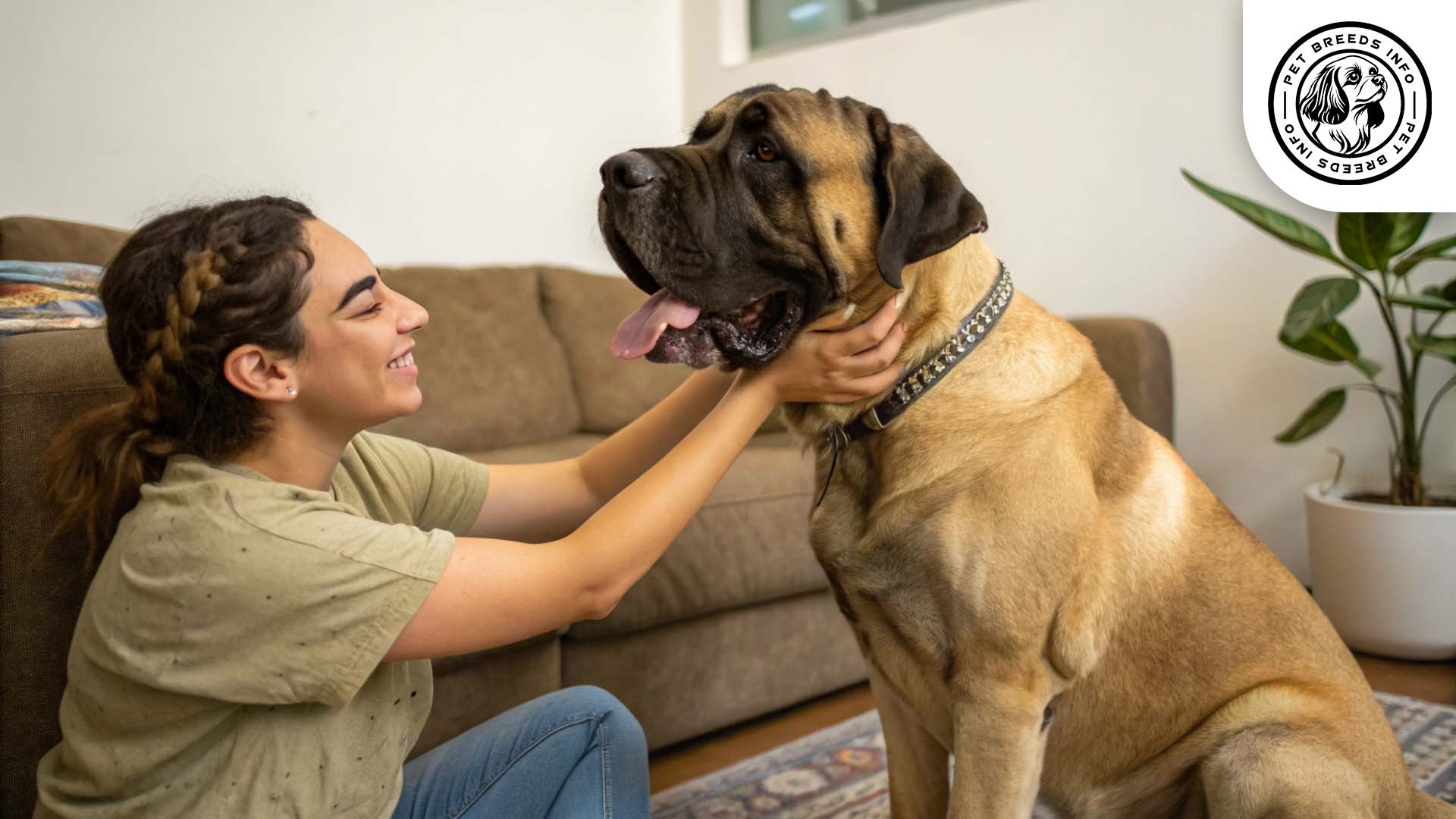
Price and Availability
The price of a Mastiff puppy from a reputable breeder ranges from $1,500 to $3,500, depending on lineage and location.
Adopting from shelters or breed-specific rescues is a more affordable and ethical option.
Potential owners should research reputable breeders or consider adopting from rescues to ensure responsible breeding practices.
Read More: Kai Ken Dog
Conclusion and Final Thoughts
The Mastiff is a loyal, gentle giant that requires a responsible owner who can provide consistent training and care.
They are best suited for families with enough space and time for their exercise and companionship needs.
Potential owners should consider their size, healthcare needs, and sensitivity to environmental changes before choosing this breed.
With proper training, socialization, and care, a Mastiff can be a devoted and protective family companion.
FAQ
Are Mastiffs good family dogs?
Yes, they are gentle, affectionate, and protective, making them great family companions.
Do Mastiffs require a lot of exercise?
No, they have moderate energy levels and need only short walks and playtime.
Are Mastiffs easy to train?
They are intelligent but can be stubborn, requiring patient, positive reinforcement training.
Do Mastiffs drool a lot?
Yes, Mastiffs are known for heavy drooling, especially after eating or drinking.
Can Mastiffs live in apartments?
Yes, but they need regular walks and enough indoor space due to their large size.
